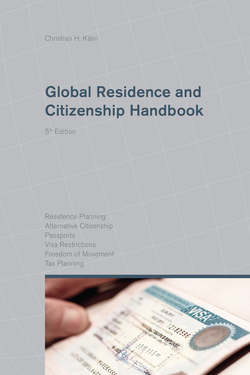Читать книгу Global Residence and Citizenship Handbook - Christian H. Kälin - Страница 34
На сайте Литреса книга снята с продажи.
Exit taxes and extended income taxes
ОглавлениеOne problem with moving your tax domicile to another country, especially to one with low taxation, is that several high-tax countries have taken steps to discourage such moves, namely by introducing a form of exit tax or an extended income tax regime, or a combination thereof.
Exit taxes can be classified as general and limited taxes which are levied on income or capital gain that has accrued but not yet been realized; or as unlimited or limited extended income tax liability, which applies on income or capital gains arising after emigration.
Also, a claw back of tax deductions could be invoked – for example whereby a previously tax deductible accrual would be revoked.13
In Germany, for example, the extended limited tax liability can apply for a period of 10 years after emigration which can be very burdensome for the individual. More and more countries are drafting special tax rules to make moves abroad fiscally less attractive.14
Many high tax countries already impose such regimes to discourage fiscal emigration.15 It is sometimes possible to mitigate – or in some cases even completely bypass – such taxation by appropriate structuring before, during and after a move abroad. However, this almost always requires the taxpayer to make a clean break with the former country of residence and to strictly avoid any links with it such as maintaining a second home there, making frequent visits or longer stays on its territory etc. These conditions can be tough for many expatriates and should be carefully weighed against the tax advantages such a radical change in one’s life will bring.
